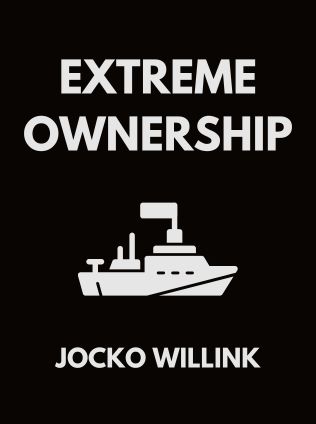
Good to Great
Why Some Companies Make the Leap and Others Don't
By Jim Collins
Published 07/2011
About the Author
Jim Collins is a renowned researcher, author, and consultant focused on the field of business management and company sustainability. He has authored or co-authored six books, which have sold more than 10 million copies worldwide. Collins founded a management laboratory in Boulder, Colorado, where he continues to conduct research and advise corporate leaders. In 2017, Forbes recognized him as one of the 100 Greatest Living Business Minds.
Main Idea
Jim Collins' Good to Great explores how companies transition from being good to achieving sustained greatness. Collins and his research team studied eleven companies that made this leap and sustained their success for at least fifteen years. The book identifies the key principles and factors that distinguish great companies from merely good ones, providing a roadmap for achieving lasting excellence.
Table of Contents
- Introduction: Discovering a New Intelligence
- Level 5 Leadership
- First Who...Then What
- Confront the Brutal Facts
- The Hedgehog Concept
- A Culture of Discipline
- Technology Accelerators
- The Flywheel and the Doom Loop
- Conclusion
Introduction: Discovering a New Intelligence
Collins begins by examining the common phenomenon of companies achieving a certain level of success but failing to reach greatness. Inspired by a conversation about his previous book, Built to Last, Collins explores whether good companies can become great and how. His research identified key principles that great companies follow to achieve and maintain exceptional performance.
Level 5 Leadership
At the heart of every great company is a Level 5 leader, characterized by a combination of personal humility and professional will. These leaders prioritize the company's success over their own egos, focusing on long-term goals rather than personal recognition.
"Level 5 leaders direct their egos away from themselves and towards the bigger goal of building their company. They are very ambitious but 'their ambition is first and foremost for the institution, not themselves.'" - Jim Collins
Level 5 leaders are described as modest, humble, and reserved yet possess a fierce resolve and unwavering determination to do whatever it takes for the company's success. They look out the window to give credit for successes to external factors and in the mirror to take responsibility for failures.
- A Level 5 leader gives credit to the team for successes and takes personal responsibility for failures.
- They cultivate a culture of humility and ambition focused on the company's growth rather than personal accolades.
First Who...Then What
Great companies prioritize getting the right people on the bus and the wrong people off before deciding on a direction. This approach ensures that the company can adapt to changes and challenges with the right team in place.
"If we get the right people on the bus, the right people in the right seats, and the wrong people off the bus, then we'll figure out how to take it someplace great." - Jim Collins
The right people are self-motivated, disciplined, and aligned with the company's core values, reducing the need for extensive management and motivation.
- Hiring individuals who align with the company’s values and culture, even if their skills are not a perfect match initially.
- Firing individuals who are not a good fit, despite their technical competence, to maintain a cohesive team dynamic.
Confront the Brutal Facts
Great companies create a culture where the truth is heard and confronted. They maintain unwavering faith that they can and will prevail despite the brutal facts they face.
"Great companies have a climate where the 'truth is heard, and brutal facts are confronted.'" - Jim Collins
Facing reality with honesty and clarity allows companies to make informed decisions and build resilience.
- Regularly holding open forums where employees can discuss challenges and issues without fear of repercussions.
- Leadership acknowledging and addressing industry shifts and competitive pressures rather than ignoring them.
The Hedgehog Concept
Great companies simplify a complex world into a single organizing idea that guides everything. This concept consists of three overlapping circles: what you can be the best in the world at, what drives your economic engine, and what you are deeply passionate about.
"A Hedgehog Concept is 'a simple, crystalline concept that flows from deep understanding about the intersections of the following three circles: What can you be best at in the world? What drives your economic engine? What are you deeply passionate about?'" - Jim Collins
This focused approach allows companies to make decisions and take actions that align with their core strengths and passions.
- A company identifying its core competency in customer service and building its strategy around becoming the best in that area.
- Aligning all business activities with the company’s passion for innovation and excellence in a specific field.
A Culture of Discipline
Great companies cultivate a culture of discipline, balancing freedom and responsibility without the need for excessive bureaucracy. They focus on disciplined people, thought, and action.
"Bureaucracy and hierarchy can be avoided when a company has a culture of discipline." - Jim Collins
Self-disciplined employees operate within a framework that aligns with the company's Hedgehog Concept, ensuring consistent and focused efforts toward greatness.
Sign up for FREE and get access to 1,400+ books summaries.
You May Also Like
The Lean Startup
How Today's Entrepreneurs Use Continuous Innovation to Create Radically Successful Businesses
By Eric RiesWho Moved My Cheese?
An Amazing Way to Deal with Change in Your Work and in Your Life
By Spencer Johnson, M.D.Make Your Bed
Little Things That Can Change Your Life...And Maybe the World
By William H. McRavenThe Ride of a Lifetime
Lessons Learned from 15 Years as CEO of the Walt Disney Company
By Robert IgerThe Hard Thing About Hard Things
Building a Business When There Are No Easy Answers
By Ben Horowitz



















